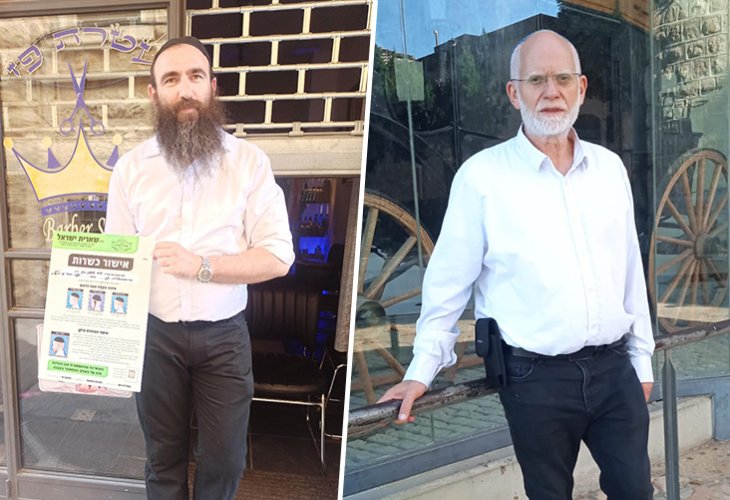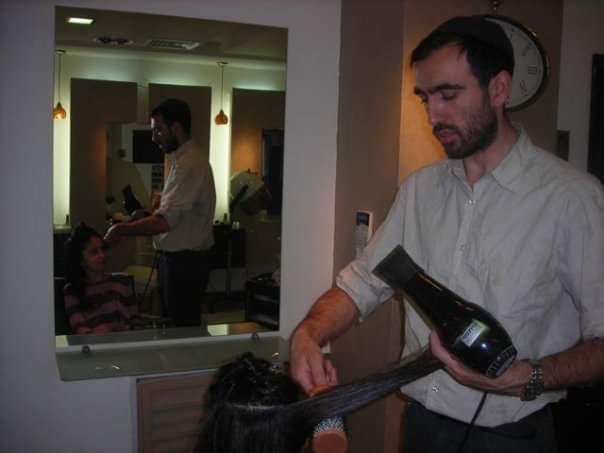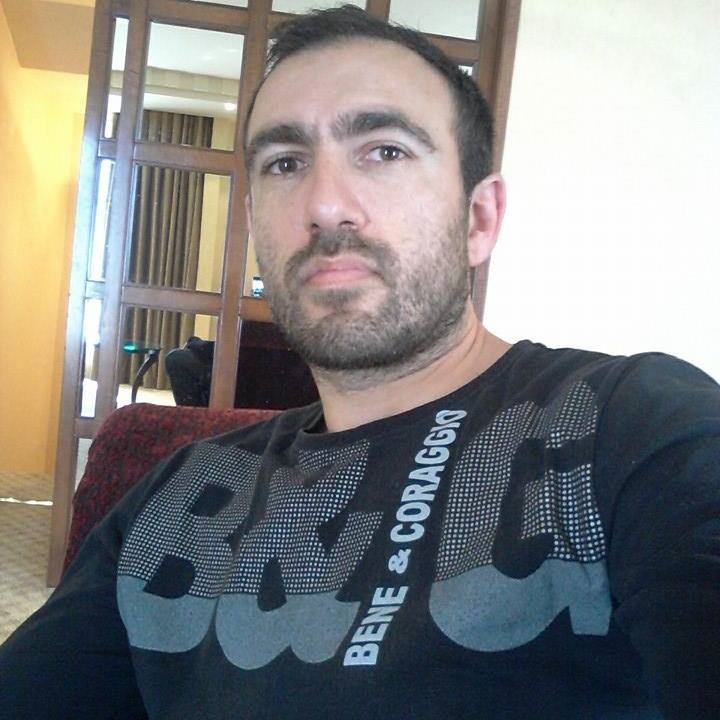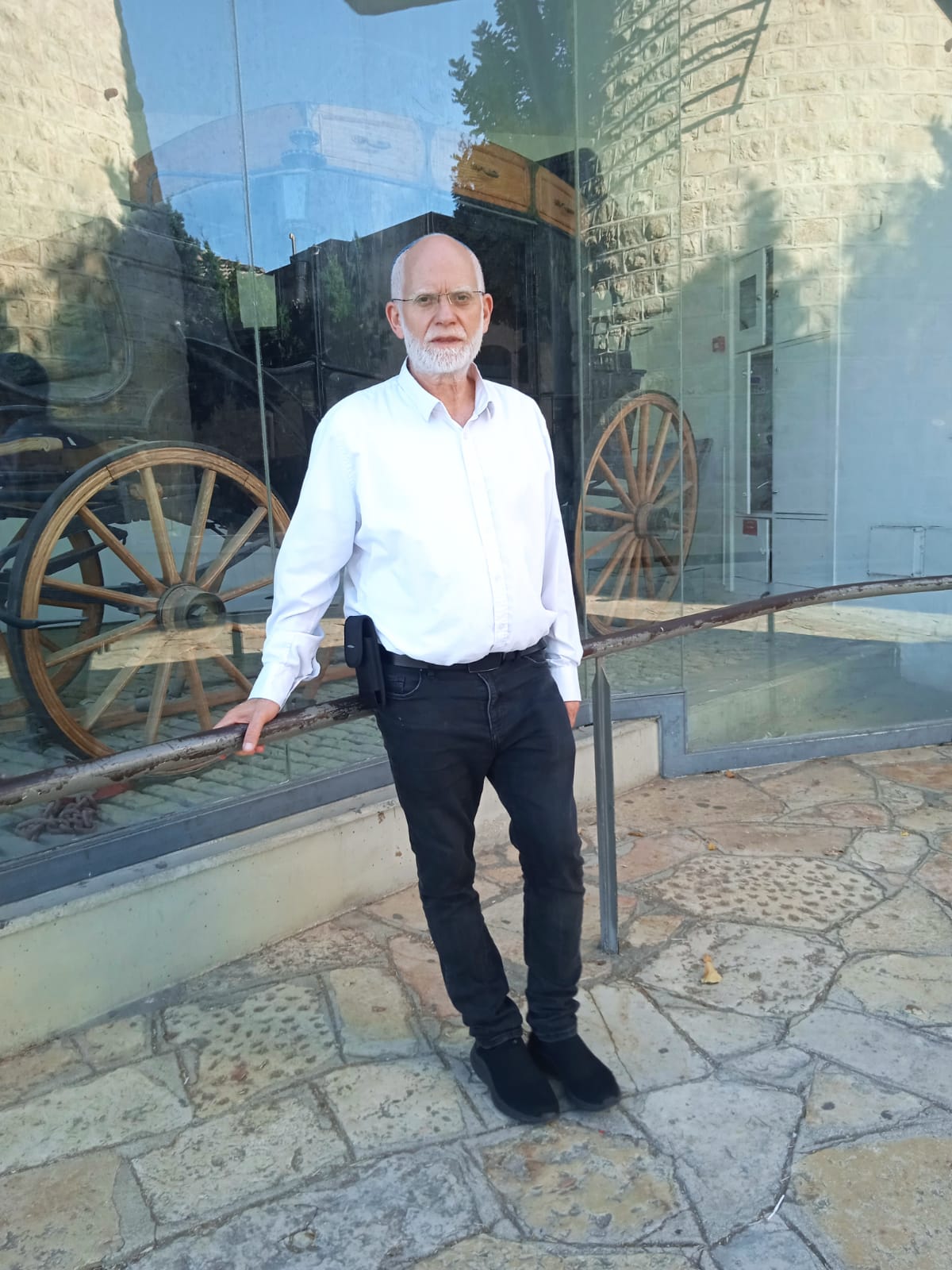Finding My Way: A Journey of Faith and Resilience
David Cohen and Shimon Ifargan, barbers who embraced faith, share their transformative journeys and revelations. "It's not always easy to follow the religious path in our work, but it's the right thing to do."
 Shimon Ifargan and David Cohen
Shimon Ifargan and David Cohen"Upon my return to faith, I faced many challenges in my profession as a barber," says David Cohen, 48, a husband and father of four living in Jerusalem. "I was born in a secular, atheist family in a suburb of Paris. My father immigrated to France from Algeria, and my mother from Morocco. We were secular to an extent that's difficult to describe. For example, I only knew of Yom Kippur and Passover because of Jewish classmates who weren't there during those holidays. My maternal grandfather was religious, but it wasn't passed down."
"At 17, I became interested in hairdressing to earn some money. I liked it and decided to pursue it. I invested heavily in my profession, which wasn't simple, as there's a big difference between being a barber in Israel and in France. In France, you're required to have a certification to practice, and another to open a shop. It takes three years of apprenticeship and studies to get a barber's license, and another two years to open your own place. I received both certifications."
"Later, I worked in a very prestigious salon in Paris, styling many celebrities, including Ivanka Trump. The next stop was a salon in Toulouse. During that time, I joined a group of artists putting on large, special shows and led a very colorful life. Materially, I was at my peak, truly enjoying life."
 David Cohen
David CohenHow did you begin to reconnect with Torah and mitzvot?
"I was 28 at the time. Around that age, I started pondering the meaning and purpose of life. Materially, I had plenty, but spiritually, I felt a huge void. One day, after a conversation with a nuclear scientist, I suddenly understood there is a God. Once that was clear, I sought the right way to serve and connect with Him. I quickly realized that it should be through fulfilling mitzvot and learning the Torah He gave us. A few days later, I ran into two Jewish men on the street; I talked to them, and they helped me put on tefillin. That's how I began learning about Judaism, gradually became stronger in my faith, and started observing Shabbat. When I realized that I hadn't had a bar mitzvah, I asked a rabbi to celebrate one for me, which I had at age 28."
"A few weeks later, I went to a meal at a Chabad emissary's home in Toulouse. When I returned, my friends, all non-Jews, invited me to the café we often frequented. I didn't know how to tell them I was now observing Shabbat and wanted to be part of the Jewish community. I asked the Chabad emissary what I should do. To keep mitzvot, I had to change everything—my friends, my job, where I lived. It was like being reborn. From our talk, I understood that I needed to move to Israel. Three months later, I was there, and I've never left."
I Have a Dream
"I wanted very much to strengthen my faith, but it was tough. My parents were against it, I had no money, and I didn't know Hebrew well, which made being a new immigrant challenging. I also wanted to get married, but it wasn't easy both financially and because in the ultra-Orthodox community, it's hard for those who have returned to faith to find a match. Additionally, as a Cohen, not all women are permissible for me to marry. It took me ten years of hardship, but today I realize I couldn't have received a better gift from above. When we married, my wife was traditional, but now she strengthens me."
I assume you wanted to work as a barber in Israel since that's your profession.
"During those years, I worked at a salon in Jerusalem, cutting hair for both men and women. It was a very challenging period. The evil inclination made my life miserable. I shaved the beard I had grown, regressing in my faith. Later, I worked at the King David hotel, styling PM Netanyahu for six years."
"Later, I had a disagreement with the barber I worked for because as I strengthened my faith, I only wanted to cut men's hair according to Jewish law, meaning no more women's haircuts. I opened my own salon in the Shaarei Chesed neighborhood of Jerusalem, where I've been now for five years. There were many temptations because it’s more profitable to cut women's hair, and there are many men who want things I cannot do. Also, it's hard to find barbers who will work for me because few want to cut hair solely according to halacha."

"Despite this, I feel tremendous satisfaction. Not only do I follow Jewish law as required, but I also educate others. Often, people come to me, secular and religious alike, and I share knowledge about Jewish law and haircuts they didn't know about. Many stop doing things that are forbidden as a result. With Hashem's help, I'm able to show people they can have a stylish haircut that also complies with halacha. My salon has a rabbinical kosher certification from the Badatz Sheerit Yisrael, which is a great help. We reviewed all the relevant laws, and everything is well-organized and clear. I love what I do, seeing how much good it does for people, and I dream of opening a kosher salon near every Chabad house worldwide so any Jew wanting a haircut according to Jewish law will have a convenient option."
Breaking Through on Air
"For me, hairdressing began as a hobby," says Shimon Ifargan, 64, a husband and father of six from Kiryat Shmona, and a salon owner in the city. "My family immigrated from Morocco when I was two. I grew up in a traditional family with parents who instilled good values. At some point, I strayed from this path, but years later, a hard slap from life brought me back to Torah and mitzvot."
 Shimon Ifargan
Shimon Ifargan"Cutting hair came naturally to me. Initially, I cut hair for friends and soldiers I served with, and in 1996, I opened my own salon. I learned women's hairdressing professionally, and cut hair for both women and men in my shop. Cutting women's hair is more profitable, but as I embraced my faith, I realized there were many issues, so I decided to stop. I also stopped cutting men's hair in ways that are not allowed. This decision wasn't easy, nor was implementing it. Telling clients was particularly complex, as it was very uncomfortable. Above all, there are financial concerns, and it remains challenging. This struggle is ongoing."
What gives you the strength to face this challenge?
"First and foremost, it’s divine assistance. Hashem provides strength and sends good messengers. For instance, Hashem guided me to Rabbi Eliyahu Rostami, who has been a great source of support and still strengthens me. Additionally, years ago, I called into a radio show, and during the interview, I committed to no longer cutting women's hair. The host was amazed, and the responses were warm and supportive, which strengthened me. Over the years, I have had the merit of strengthening many Jews, which also provides strength."
"I've come across very touching stories over the years. One of my clients was a professor from a nearby kibbutz near Kiryat Shmona. He said, 'I'll come for a haircut, but don't talk to me about the Torah,' because he knew I often spoke to clients to inspire them. I tried not to overwhelm him, only mentioning generally that the Torah commands us to love every Jew. He stood up in tears and hugged me, touched by the words. In the last ten years, I've also been sharing the teachings of the holy Zohar, which truly fulfills me. Even today, clients tell me, 'Because of you I started putting on tefillin, because of you I started keeping Shabbat.'
"To barbers who wish to begin cutting hair according to halacha, I can't promise it will always be easy, but I can assure you it's definitely the right thing to do. Our livelihood comes from above, and we must have faith that Hashem will provide for us exactly as we are meant to be. Certainly, if we keep His mitzvot. Anyone looking to strengthen but feels it's hard and wants advice, feel free to contact me. I’d be very happy to help."

